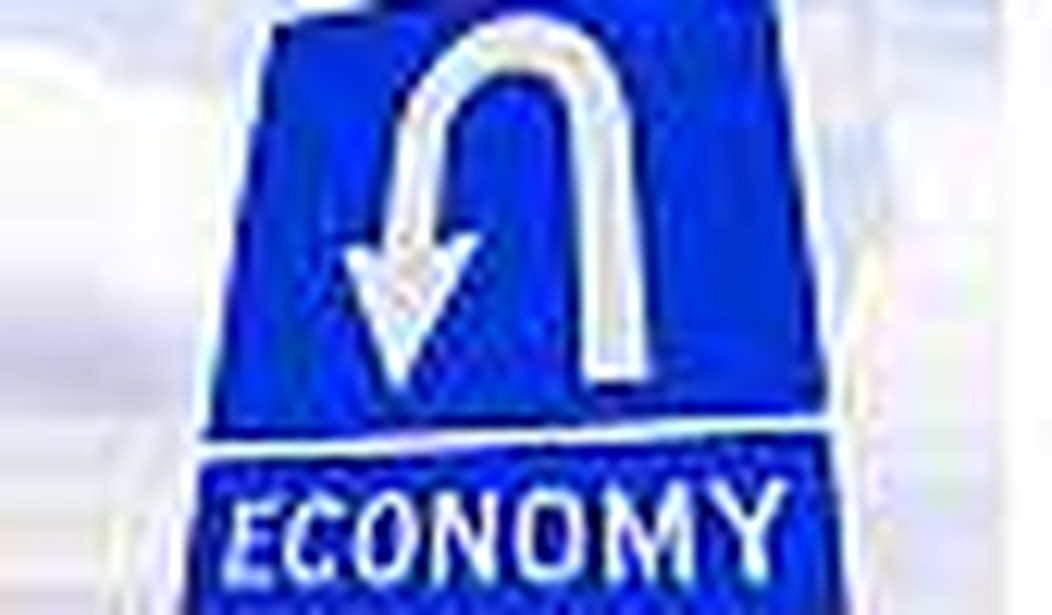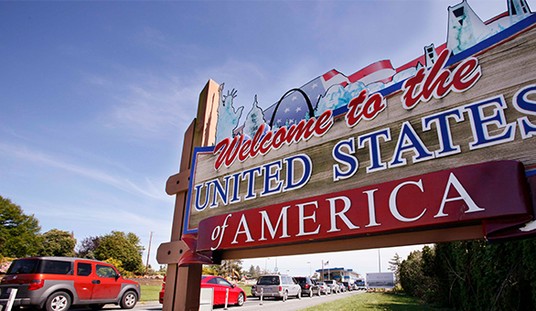The financial news reports ask “How low can we go?”
The answer quite simply is that no one knows. The Dow dropped like a stone yesterday below 6800 and there is no indication the Dow or any of the other major stock indices will be bouncing back anytime soon. While President Obama continues to ride high in the polls and garner the fawning reviews of the mainstream media, there is a growing sense that the economy is careening out of control and that the massive proposals for perpetual bailouts of failing firms, nationalized health care, cap and trade regulation, new tax hikes, and a $3.6 trillion budget are not helping matters.
Ben Stein writes:
You have been — you are now — bombarded every day with TV shows, radio news, and newspapers telling you of this government support plan and that government support plan and how they are going to rescue you. To which I can only say, when you hear the word “government,” in your mind, substitute the words “Department of Motor Vehicles.” When was the last time they rescued you? When was the last time they bailed you out of anything at all? … [T]to expect that “government” is a fairy godmother who will rescue you from your problems over any long period is just fantasy.
To put it differently, both ordinary voters and the financial markets suspect the administration does not have a plan, or a clue, regarding what to do about reviving the economy. And what they do have to offer is counterproductive. As the Wall Street Journal reports:
“Investors finally understand this recession will be deeper and longer, and the recovery will be shallow,” said Joe Battipaglia, chief market strategist for the private client group at Stifel Nicolas. “And the government doesn’t have a sense of any solution that might instill confidence.”
The Obama administration seems curiously obsessed with plans that are designed to burden investors, employers, and the very sectors of the economy that are hurting the most. It is hard to discern how a bevy of tax increases, cap and trade regulation, nationalized health care, an ongoing co-dependent relationship with two failing car companies, and “cram down” legislation designed to give bankruptcy courts power to rewrite mortgages will instill confidence or restore economic activity. Larry Kudlow calls this collectively a declaration of “war on investors, entrepreneurs, small businesses, large corporations, and private-equity and venture-capital funds.”
So what does this all mean in the short and long term? The Economist explained even before the most recent crash of the Dow:
Mr Obama’s forecast is already more optimistic than the private sector consensus was in January, and that consensus has since become more pessimistic. Ben Bernanke, the Federal Reserve chairman, said this week that the recession would end this year only if the financial system stabilizes, which so far it has not.
A longer recession or long-term stagnation pose two distinct fiscal risks. First, Mr. Obama will be (rightly) reluctant to raise taxes and tempted to extend parts of the stimulus package if unemployment is not dropping by 2010. Premature fiscal tightening, after all, could lengthen the recession, Japan learned in the 1990s.
Second, a longer recession makes it harder for America to grow out of its debt burden as it, and other countries, have done at previous debt peaks.
In short, the deepening recession throws a big wrench into Obama’s plans to skip the task of reviving the economy and slide right into enacting the agenda of ultra-liberalism. If revenues decline, businesses continue to fail, and the investor class continues to abandon the U.S. economy it makes his plans to further encumber “the rich” and private enterprise that much more problematic. Even the New York Times notes that there is an increasingly apparent disconnect between, on one hand, the dismal economic outlook and, on the other, the rosy scenarios and big government expansion envisioned by the Obama team.
As a political matter, the worsening economic outlook also puts at risk Democrats’ electoral prospects. In the race to replace Kirsten Gillibrand in New York’s 20th Congressional district, Republican Jim Tedisco is running on a tax cutting, populist message and attacking his Democratic opponent as a financial swindler and proponent of the failed Obama economic program. A win by Tedisco, who leads by double digits, would be the first sign that voters aren’t enamored of the Obama high tax, big government, bailout mania approach to the economy. Democrats will also have to run gubernatorial races in Virginia and New Jersey this year in the face of cratering economic news, rising unemployment, and enormous budgetary shortfalls run up under Democratic governors. Once again, the popularity of Obama’s policies, as opposed to his personal appeal, will face a test at the polls.
But the real action will be in 2010 when the Obama economy will be at issue. That’s the target for conservative activists (including those who assembled at CPAC last week) and the GOP’s high profile leaders. (Newt Gingrich and Mitt Romney have already declared themselves committed to doing whatever it takes to unseat incumbent Democrats.) While conservatives are incensed over the president’s big government agenda, all voters will have something to complain about if their 401(k)s continue to slide, unemployment remains high, and economic growth hasn’t returned.
In sum, all incumbents, even ones with adoring media coverage and magnificent speaking skills, face certain realities. Economic chaos is the responsibility of the party in power. Wrong track numbers in excess of 65% correlate with rejection of incumbents. And there is nowhere for the party in power to hide if they control both ends of Pennsylvania Avenue.
The economic panic which is now sweeping the markets has the effect both of upsetting Obama’s grandiose plans and undoing his new “permanent” Democratic majority. And so, the question “How low?” may become an increasingly critical query for the president. His agenda and his party’s political fortunes are riding on the answer.









Join the conversation as a VIP Member